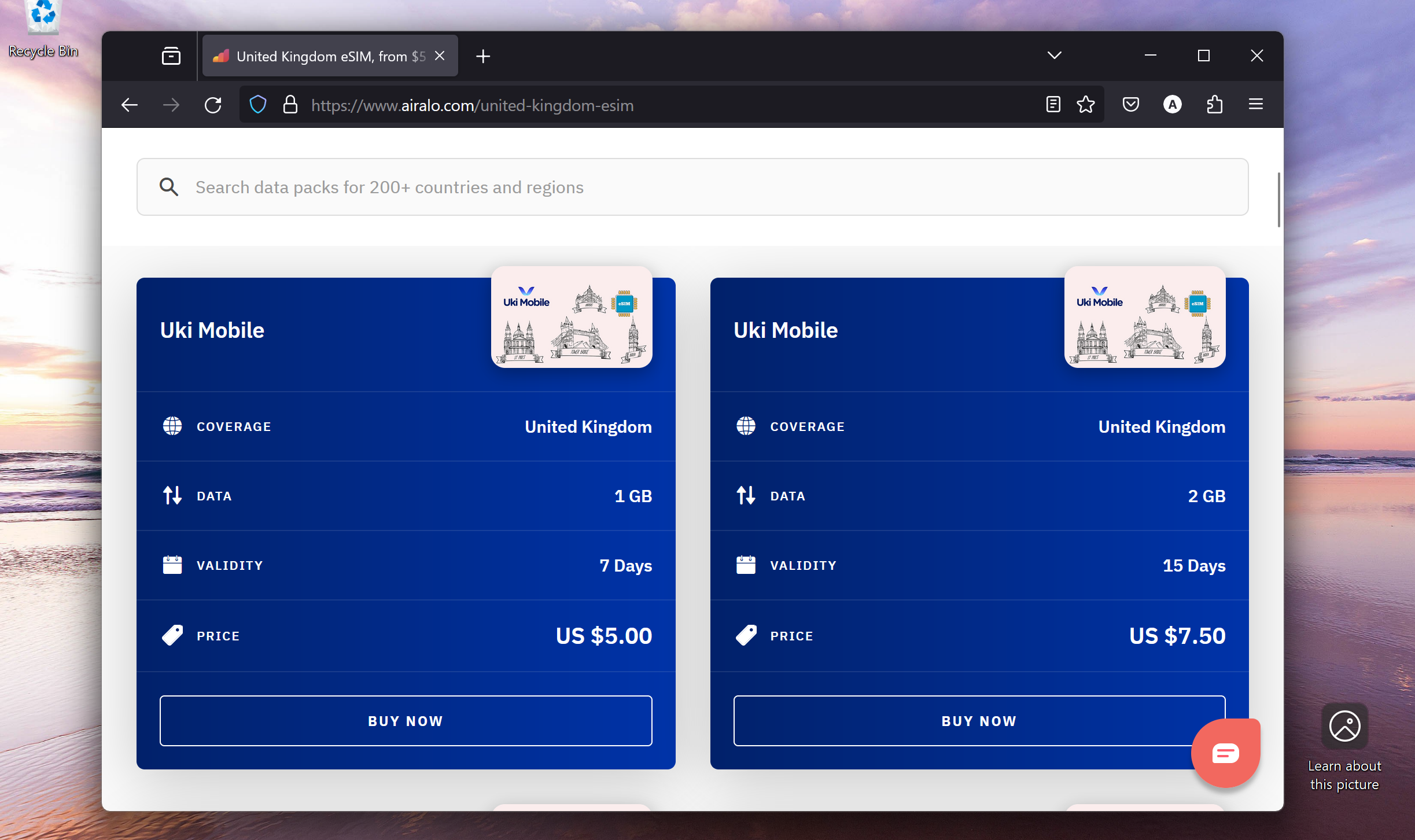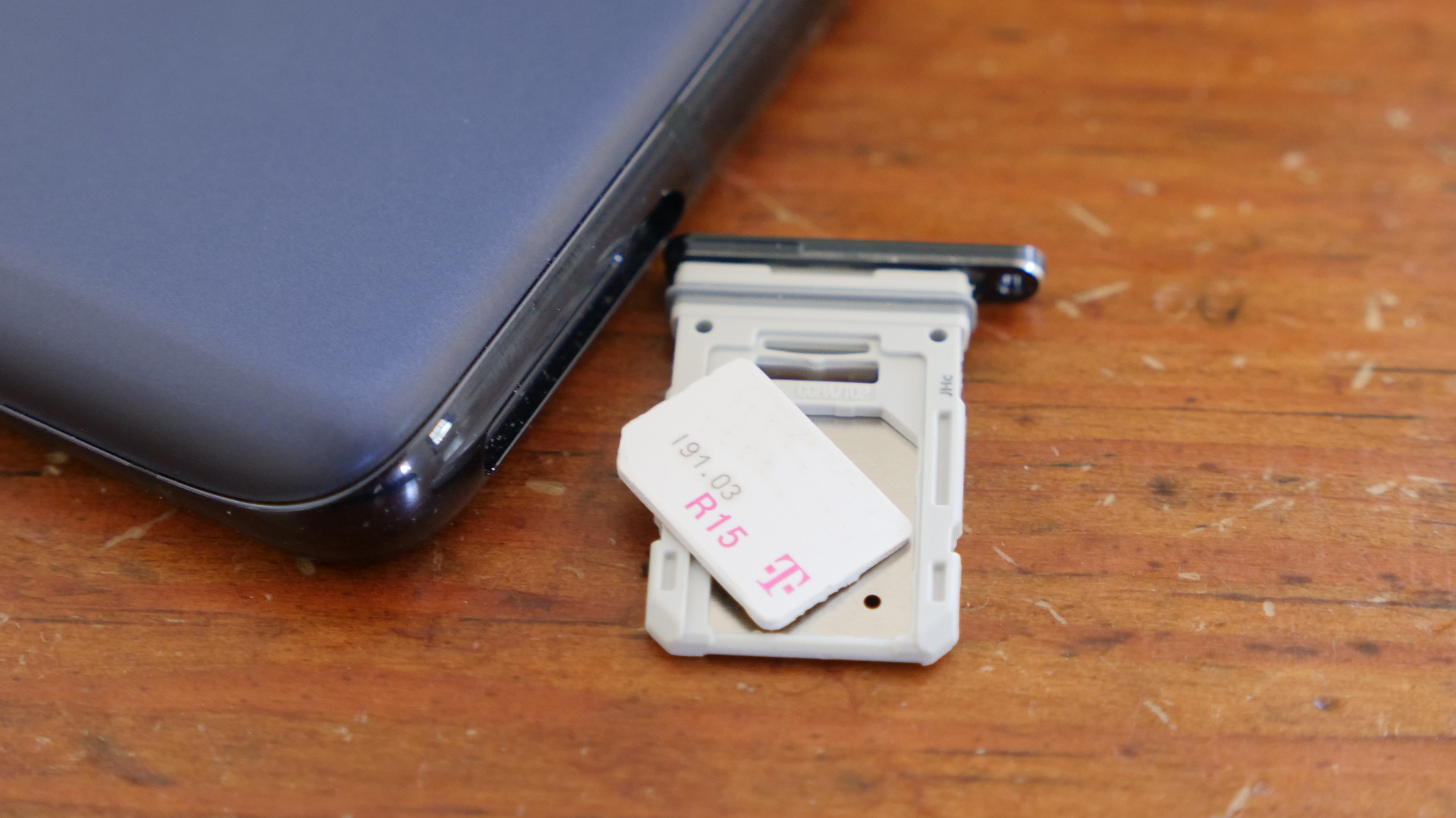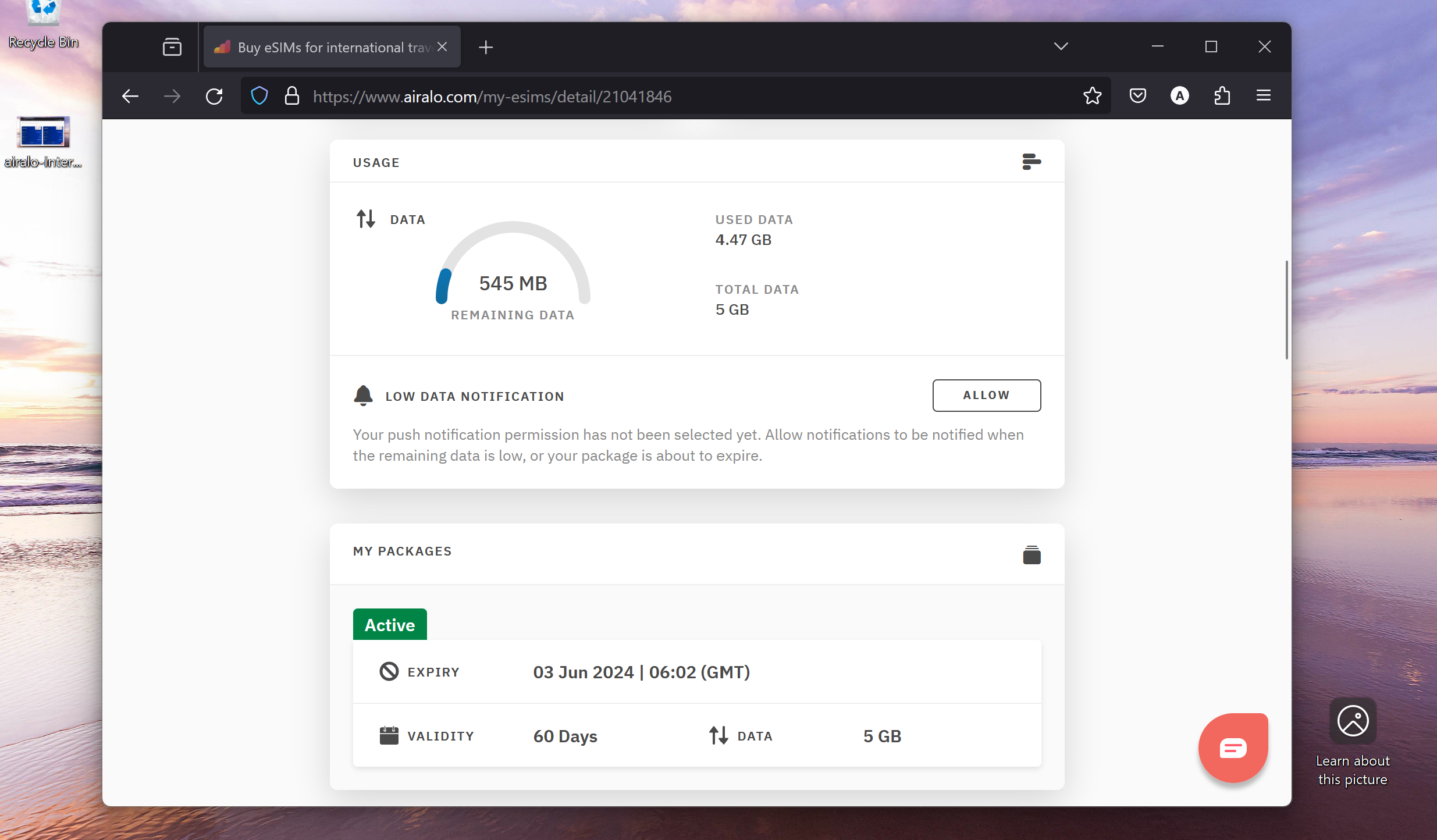I traveled with an eSIM to the UK and Japan — staying connected on a trip has never been easier
No more waiting in line at the airport for SIM cards

Sign up to receive The Snapshot, a free special dispatch from Laptop Mag, in your inbox.
You are now subscribed
Your newsletter sign-up was successful
Tell me if this sounds familiar: You land in a foreign country after nearly a day of flights and layovers. Before you can kick off your trip, you jostle past swarms of travelers, large suitcases in tow, to locate and wait in line at a tiny SIM card booth. Even though you know you’re being ripped off, you pay an obscene amount for a paltry data pack because let’s face it, the thought of getting lost overseas scares us all to death.
I’ve been in that position way too many times and it always seems like a nightmare that wakes you up in a cold sweat rather than an ideal way to start a trip. Over the last couple of tours across Europe and Asia, however, I’ve been able to skip that hassle altogether, while still latching onto a 5G connection as soon as my plane touches down. The solution? eSIM marketplaces.
What exactly is eSIM?
For those unfamiliar with this technology, an eSIM is the virtual equivalent of the physical SIM cards we’ve had for decades. It pre-programs the circuity of the thumbnail-size chip directly inside a phone so that the network provider can remotely manage and communicate with it to enable a connection. This means no more swapping a SIM in and out of your phone to switch networks — all you have to do is toggle a software setting. Most models now support eSIMs and some like the iPhone have phased out the physical SIM entirely in select regions.

Getting started on my eSIM travels
I’ve lost the little SIM card numerous times....it eliminates the need to carefully stash away my main SIM until I return home.
When I visited England a few months back, instead of acquiring a SIM card upon landing, I decided to try Airalo. You can think of Airalo as an app store for eSIM connections. You can browse SIM plans from over 200 countries and depending on how much data, calling, and SMS texts you want, you can select a plan, pay online, and install the connection on your phone like you would download an app — no SIM ejector tools or trays needed.
On Airalo, you’ll find a vast catalog of packages to pick from. You can buy a local one based on where you’re traveling to or grab a global eSIM, which will work out of the box in over 100 countries. Before I jetted off, I chose the latter as I had a lengthy layover in Dubai. Setting it up took no more than a few minutes either. Once you’ve bought a service, Airalo sends you a QR code that you can scan on your phone, and within seconds, it will be live.
I’ve lost the little SIM card numerous times, so on vacations, especially, it eliminates the need to carefully stash away my main SIM until I return home. It can just safely remain in my phone and I can disable it from the settings.

eSIM performance and pricing
Registering for an eSIM takes less time than signing up for a social network.
Airalo’s connectivity was reliable and fast throughout my two-week-long trip. Once I landed in Dubai and switched on the Airalo eSIM, it instantly connected to a top UAE provider. In London, it let me pick from some of the largest U.K. network operators, such as O2 and Three, and comfortably reported close to 100Mbps download speeds. I had a similar experience in Japan last year, where I pre-purchased a travel eSIM from another marketplace called Mobal, compared to the last time I was there in 2019 when I waited an hour in line at the airport for a SIM card.
Sign up to receive The Snapshot, a free special dispatch from Laptop Mag, in your inbox.
Another upside of platforms like Airalo is because they’re not mobile carriers themselves and instead rent bandwidth from other, established networks, you don’t have to fill out any tediously long forms. Registering for an eSIM takes less time than signing up for a social network.
Prices are on par with or more affordable than the competition. I paid a premium for a global eSIM, which cost me $35 for 5GB of data in the UK. However, if I had picked a regular data-only pack, that amount would have granted me a 20GB allowance. There are no restrictions on running a mobile hotspot either as opposed to most other options for tourists, who often end up paying extra if they need to connect a laptop or other device.
In addition, I’m fond of the user-friendly interfaces eSIM marketplaces offer. You can easily manage your SIM cards, understand each plan’s benefits with easy-to-navigate menus, check how much data you’ve left, and buy add-ons. Some platforms such as Airalo also run a loyalty program, where you earn cashback on each purchase.

eSIM is great, but it's not without some concerns
While eSIMs are a superior solution in many ways, particularly for travel, there are a few downsides worth noting. One is that eSIMs are tied exclusively to a single phone. You can’t simply take them out and drop them into a new phone like a physical SIM card. Another related problem is that while you don’t have a physical card to worry about, you also have less control over the situation when something goes wrong, which Laptop Mag’s managing editor got to experience firsthand.
Finally, there is a security concern as eSIM allows for remote provisioning, meaning your eSIM can be changed without someone having physical possession of your phone. This is a concern that Airalo acknowledges and addresses. Malware, phishing attacks, and social engineering attempts are the biggest concerns as these are used to carry out a SIM swap. Hackers use SIM swaps to try to reassociate your number with an eSIM they possess to gain access to other accounts in your possession using two-factor authentication. This isn’t a security flaw in the eSIM technology, but it is a reminder to practice safe digital habits by not clicking on any links from unknown sources or providing private information that could allow hackers to gain access to your account via social engineering.
Bottom line
While the security concerns are worth considering, for international trips, an eSIM is still a no-brainer, and now, thanks to several up-and-coming marketplaces, it’s even simpler to set one up. In hindsight, it’s the last piece of the e-travel puzzle, where while historically complex parts of a vacation like booking flights and accommodations had become far more accessible, SIM cards had felt stuck in the past. No more, fortunately, as I now head straight to the taxi stand from the baggage carrousels.
Shubham Agarwal is a freelance technology journalist from Ahmedabad, India. His work has previously appeared in Business Insider, Fast Company, HuffPost, and more. You can reach out to him on Twitter.
